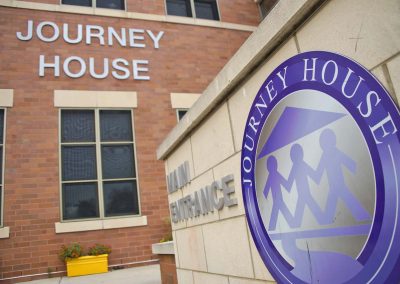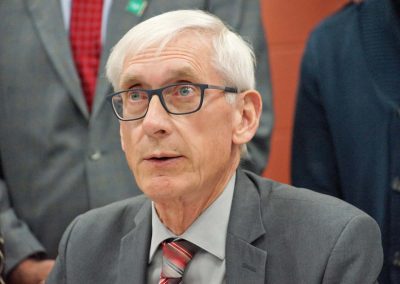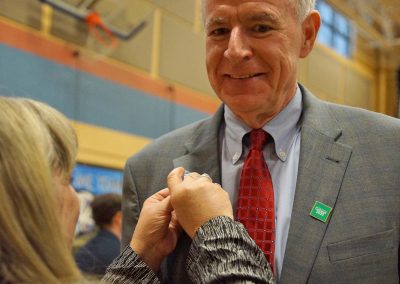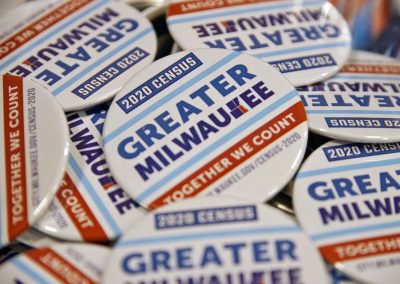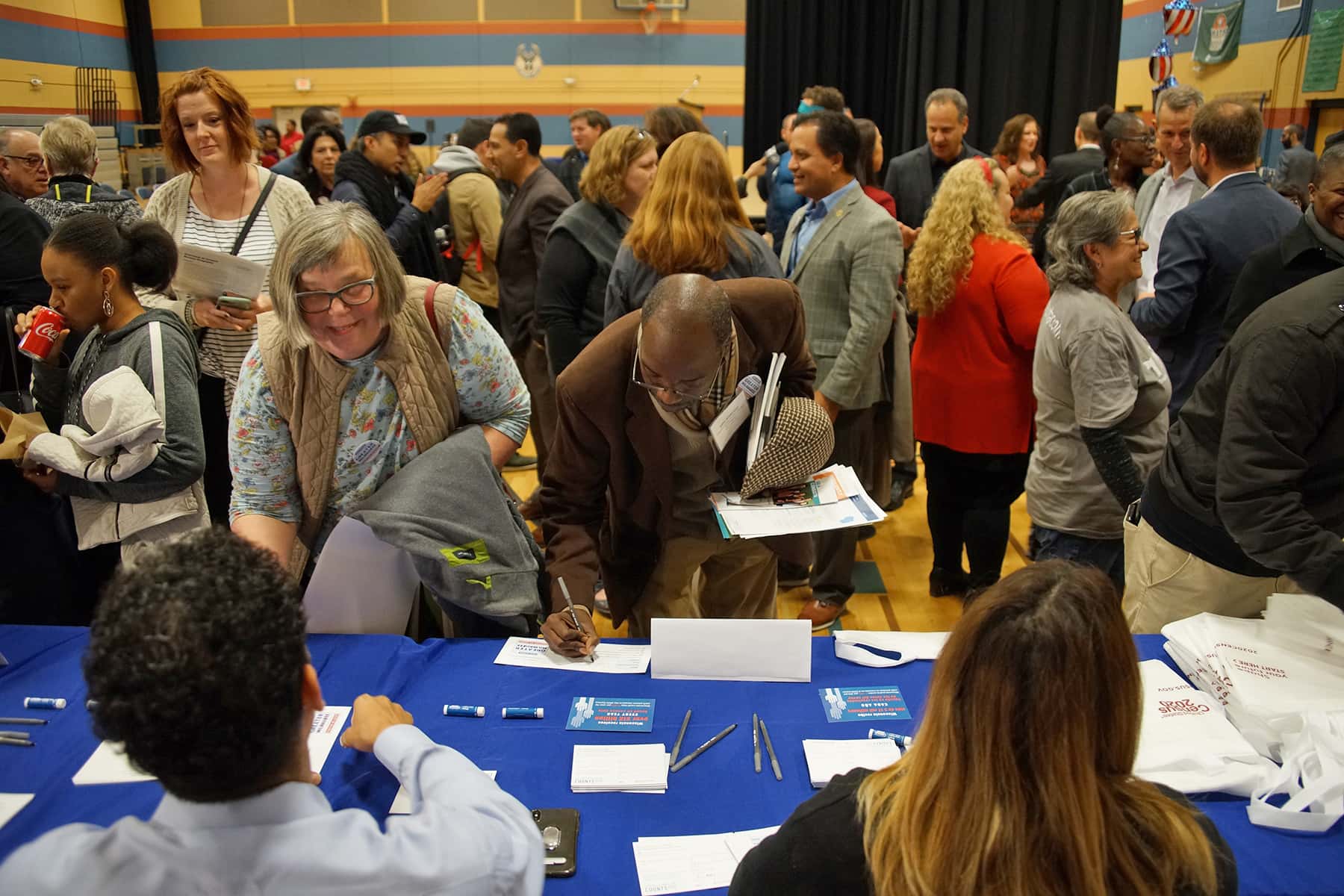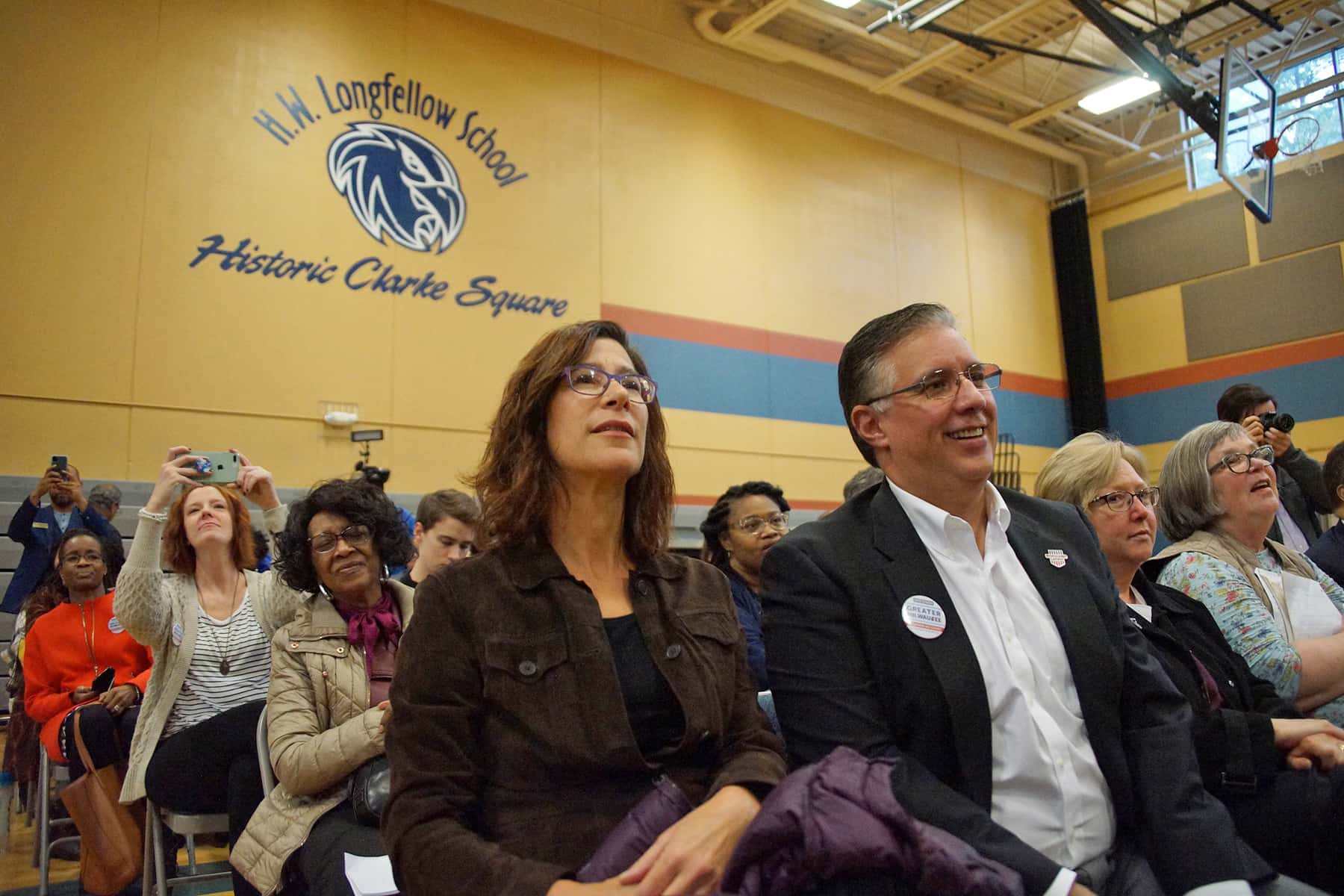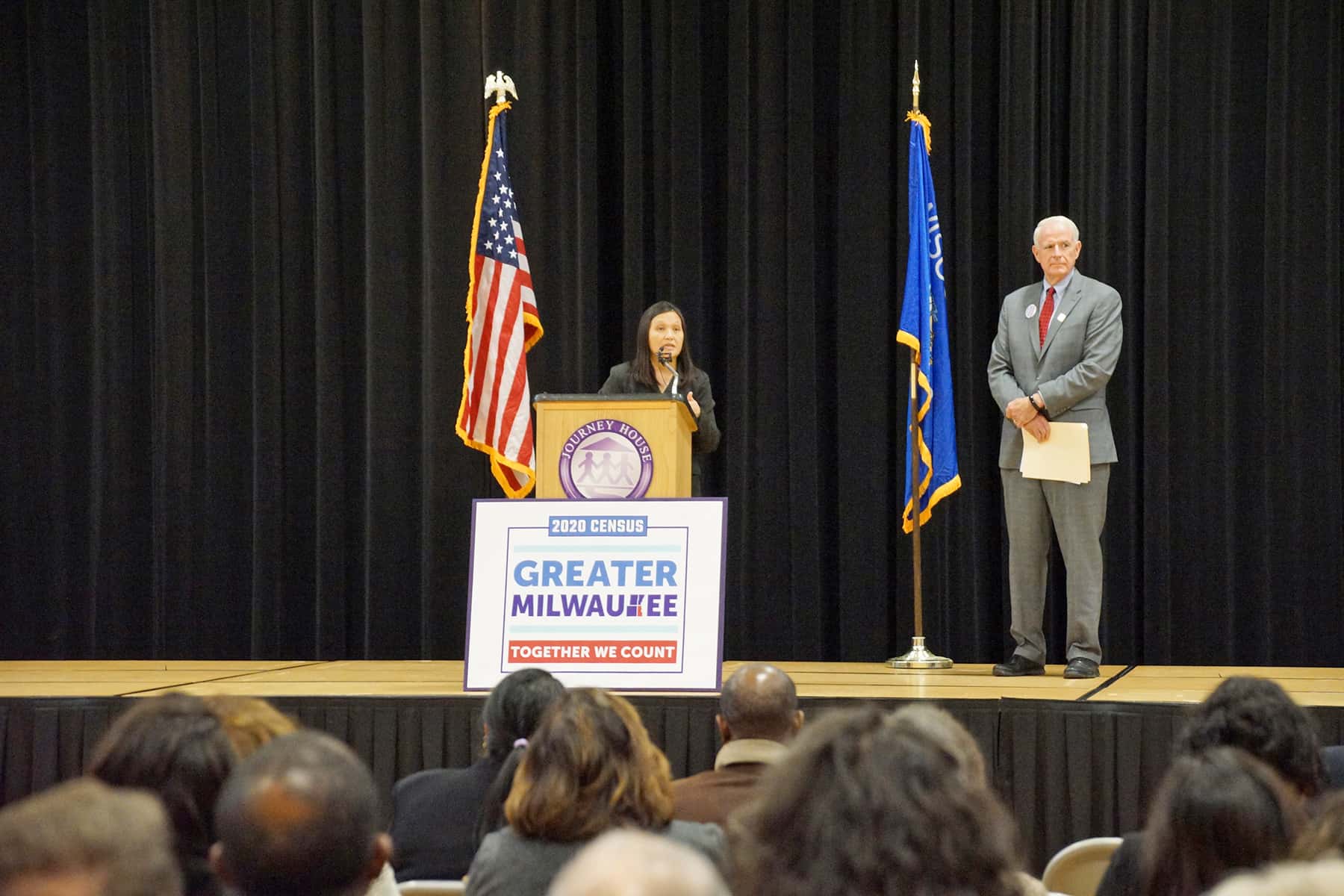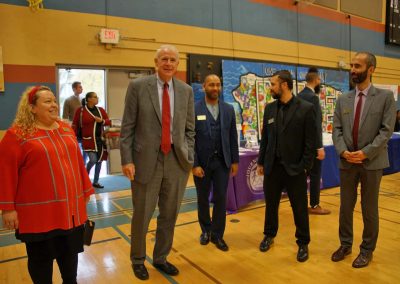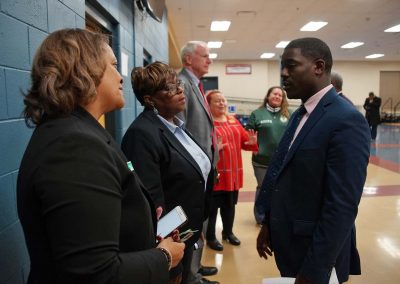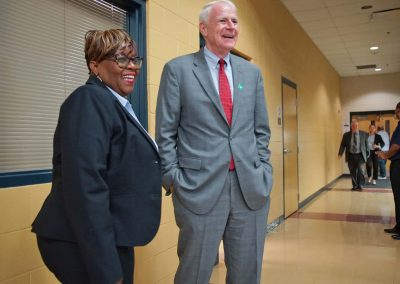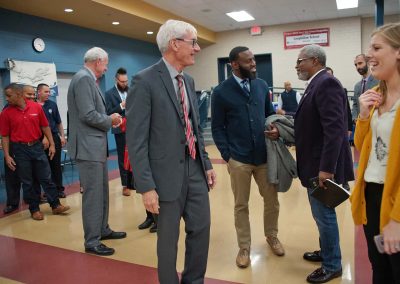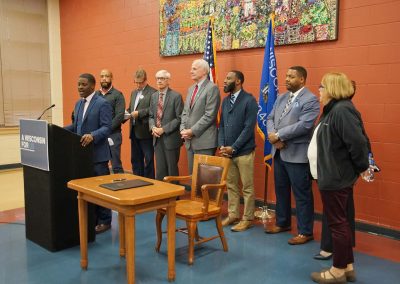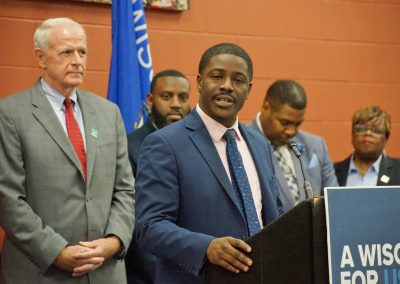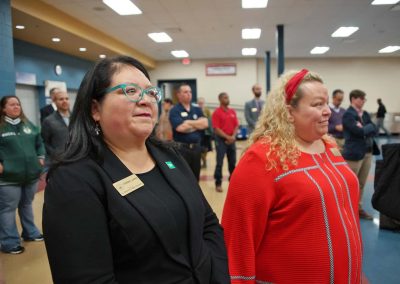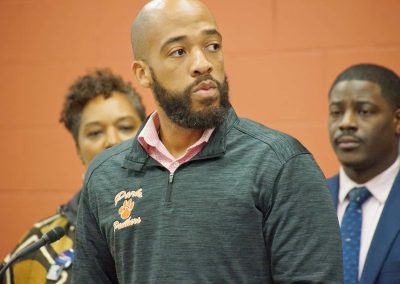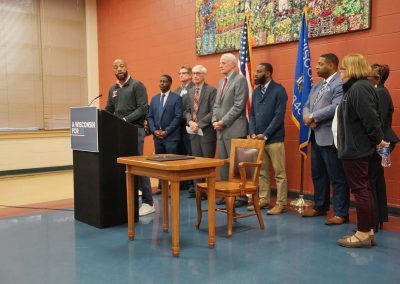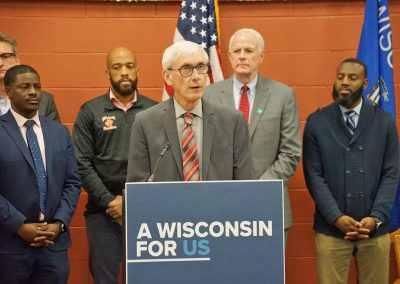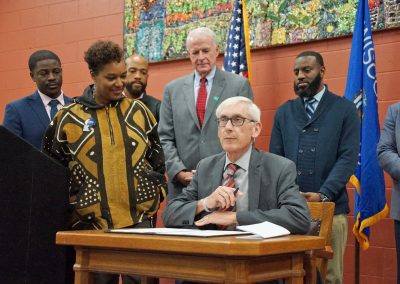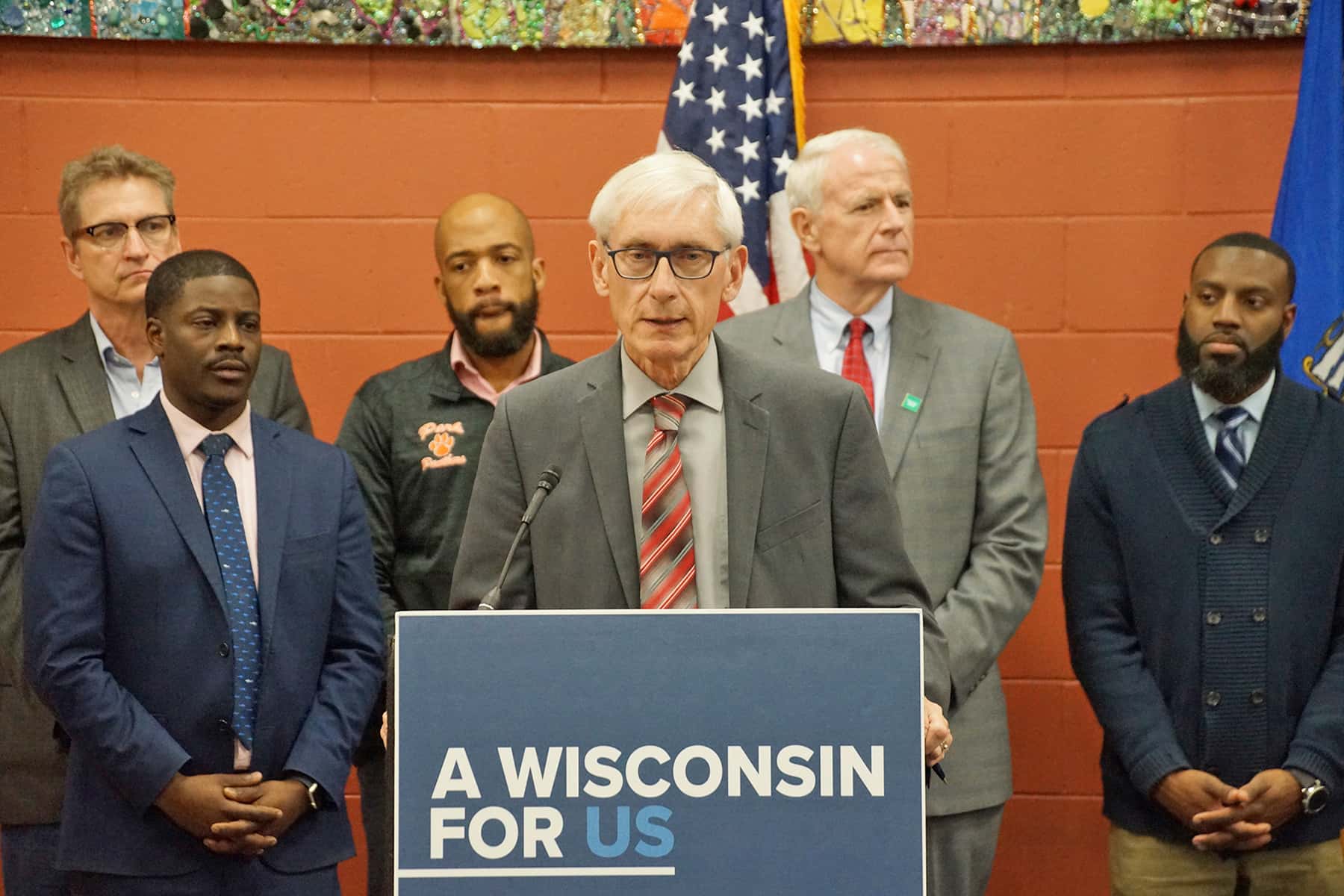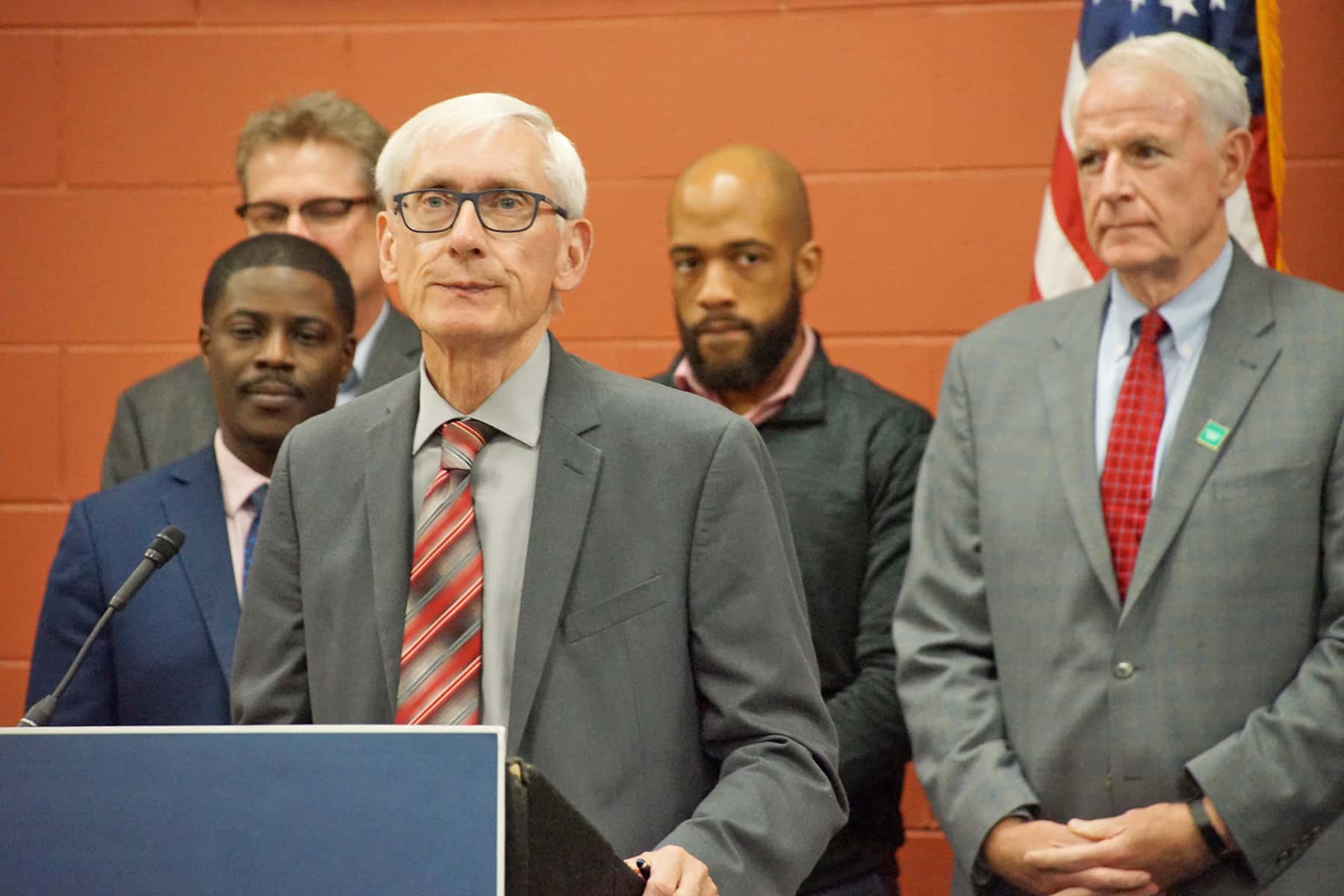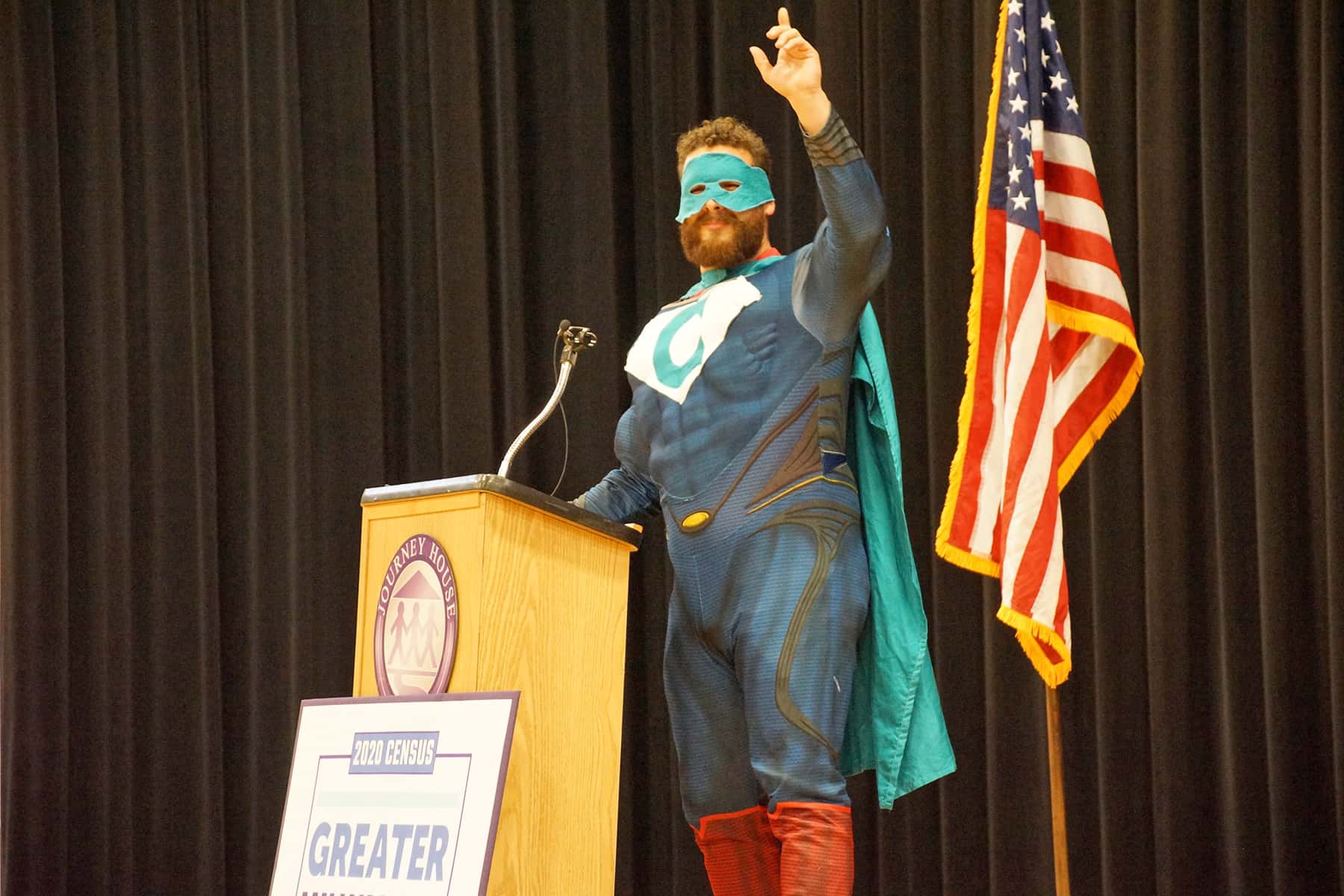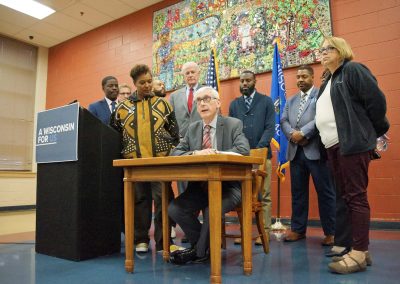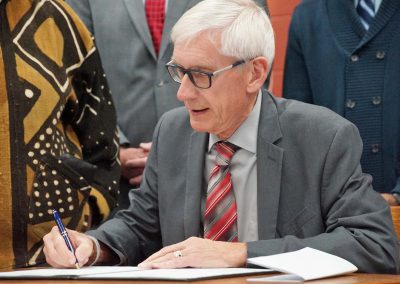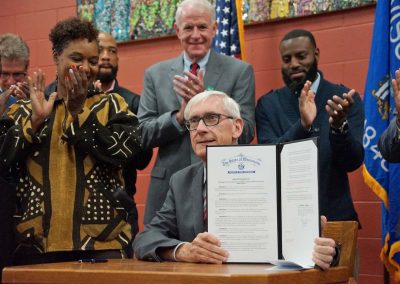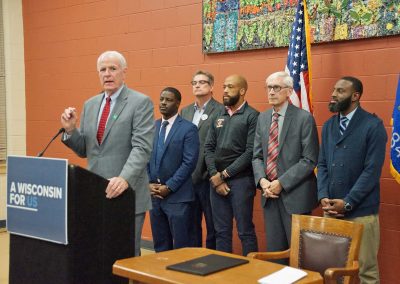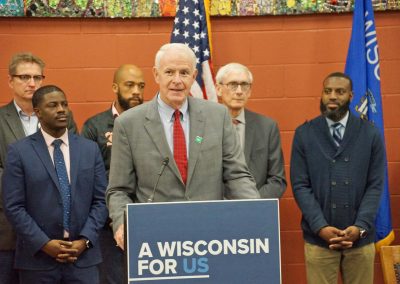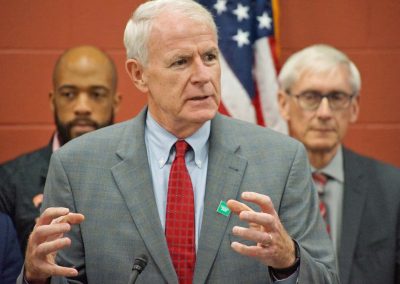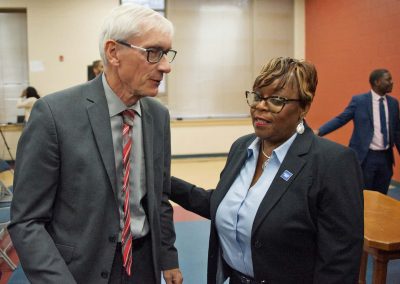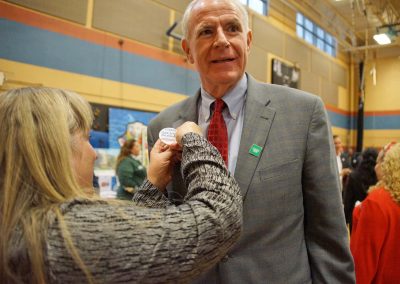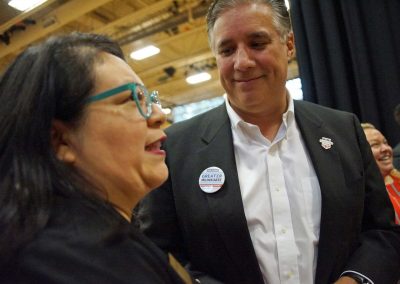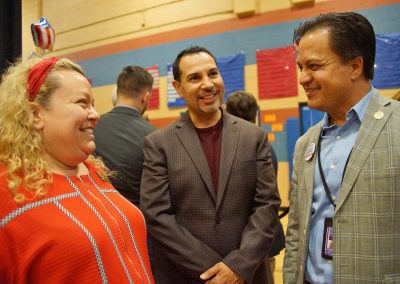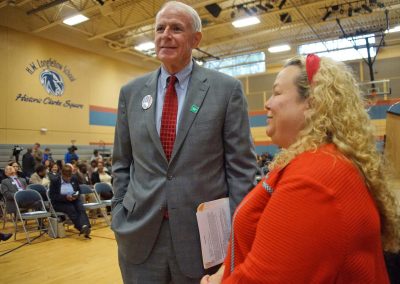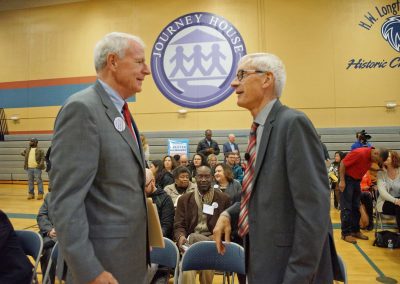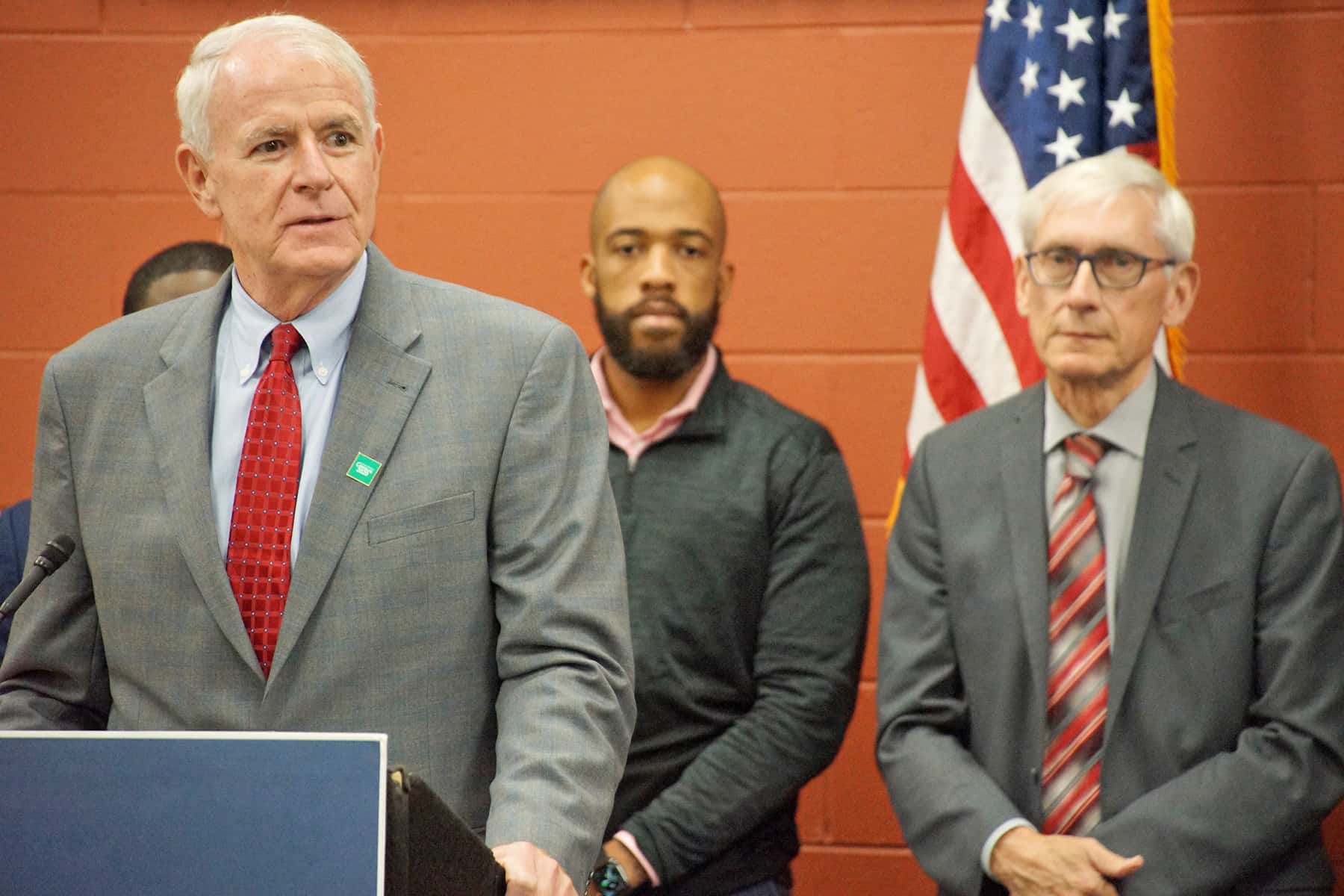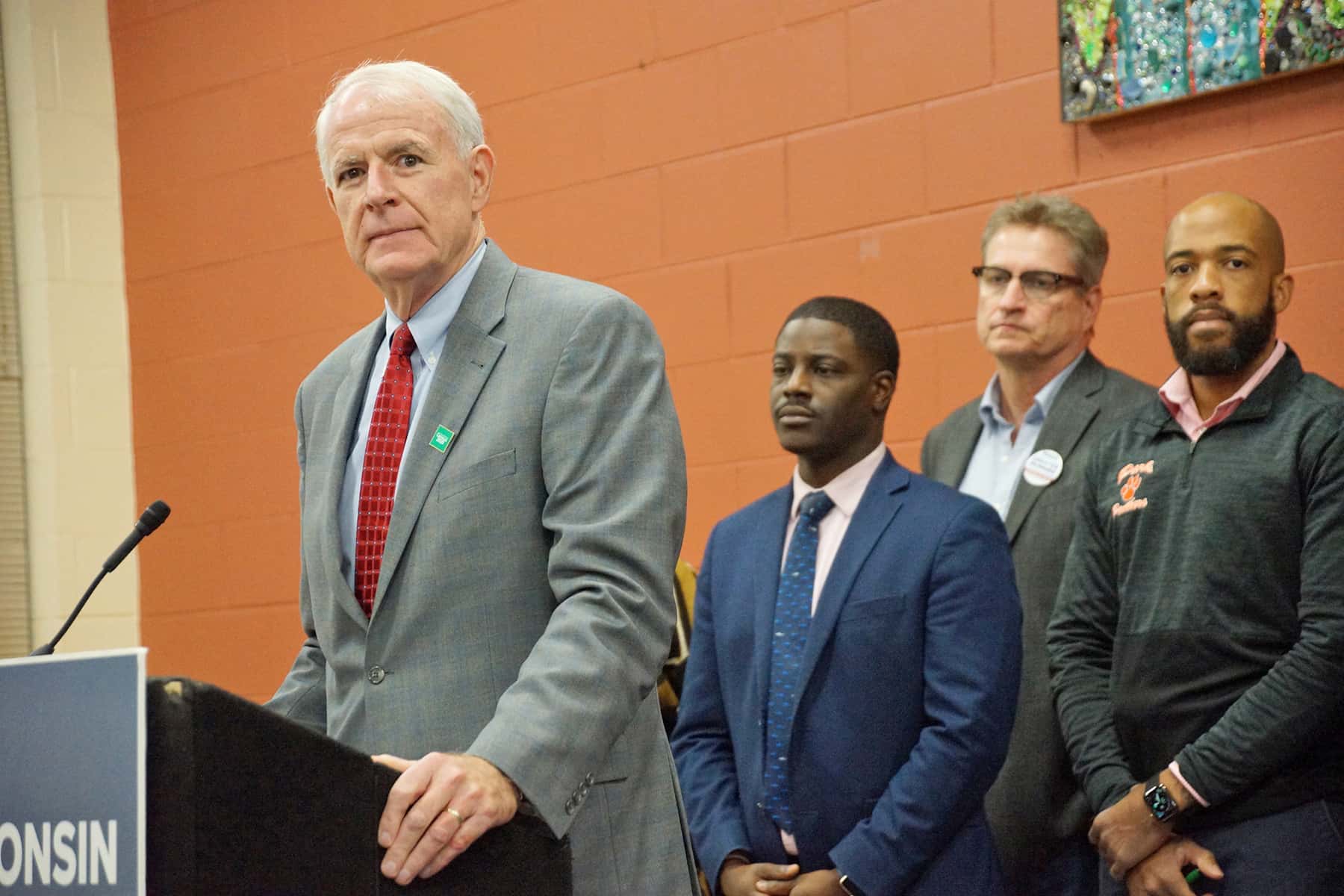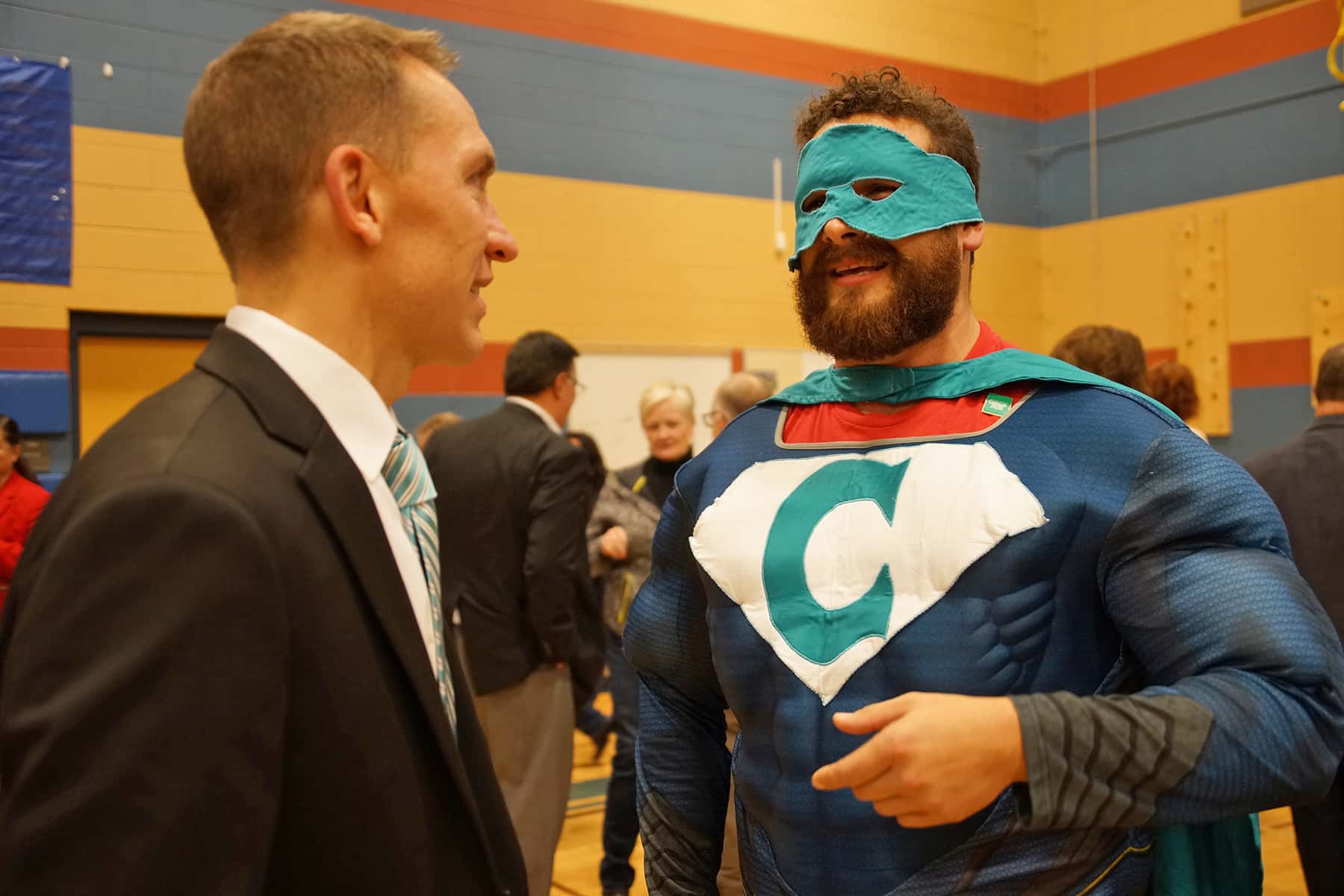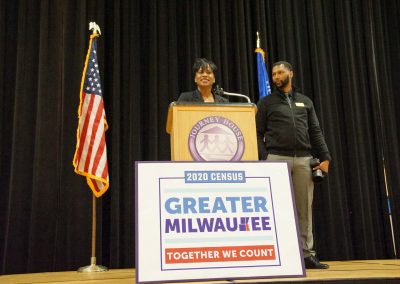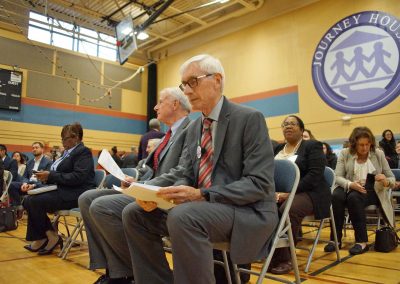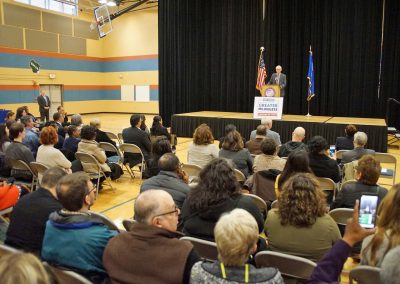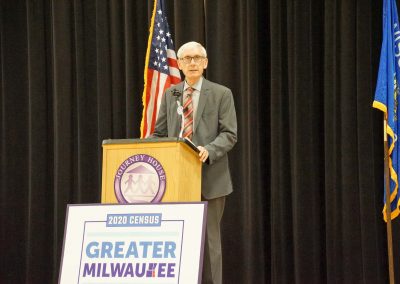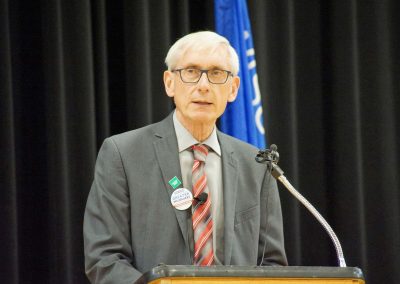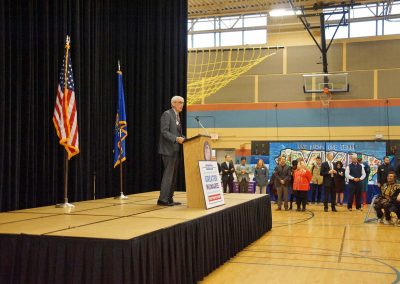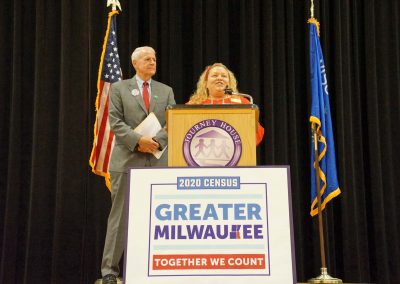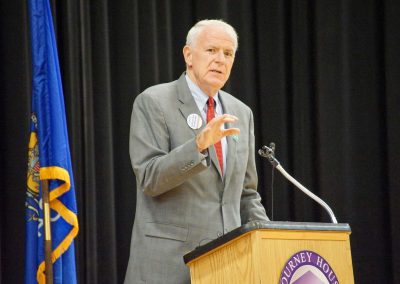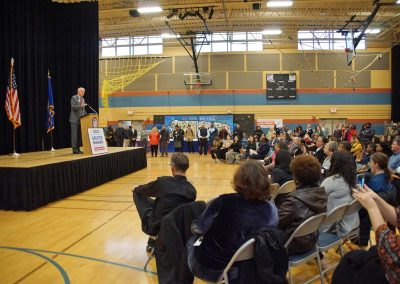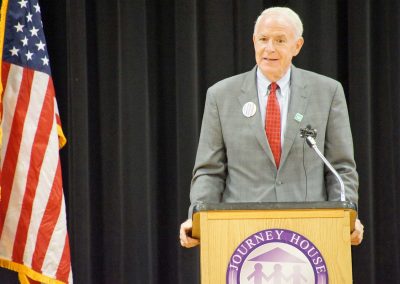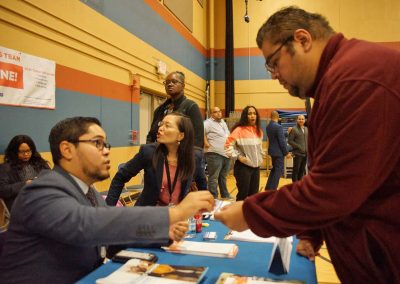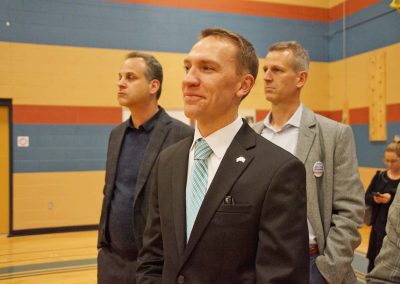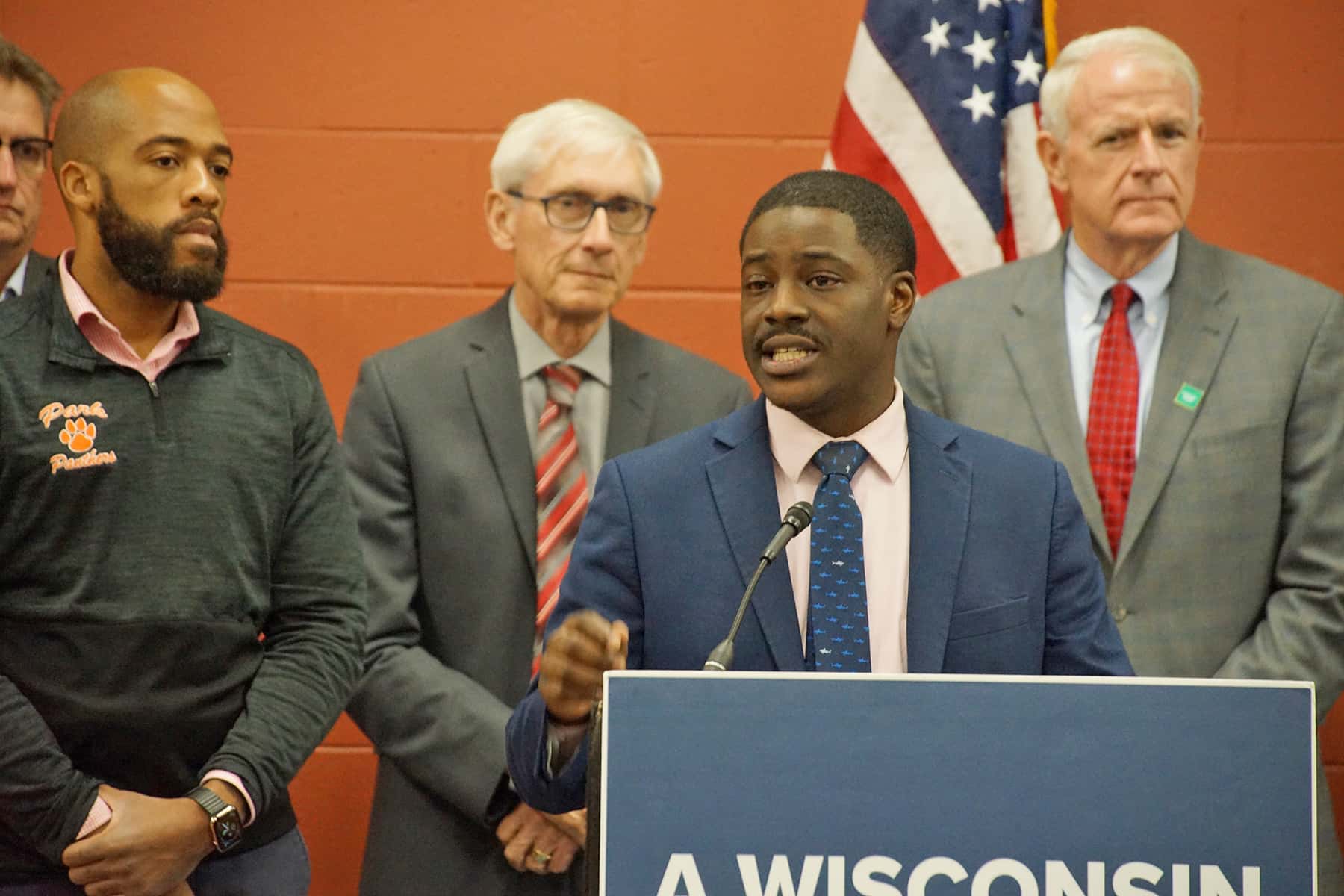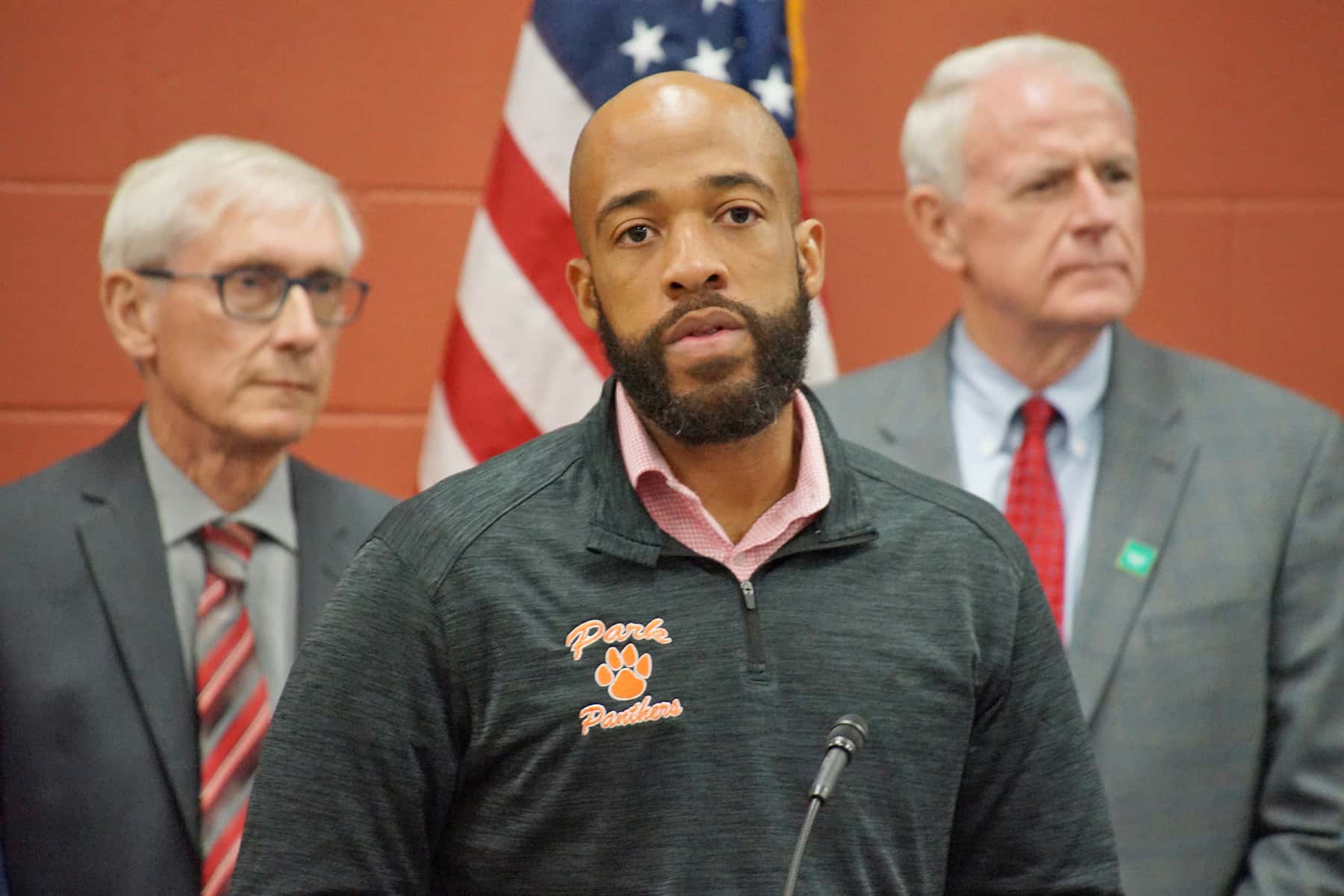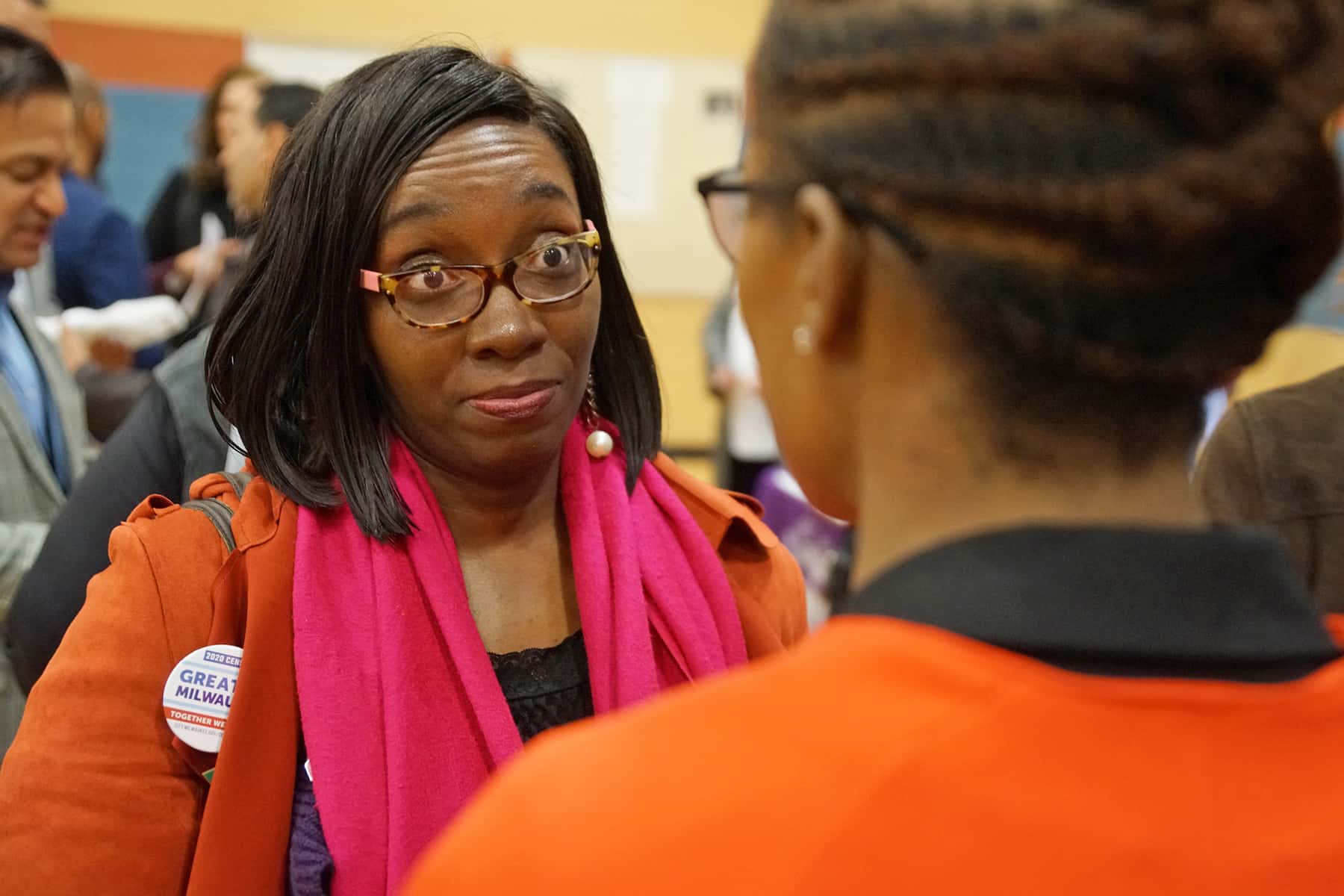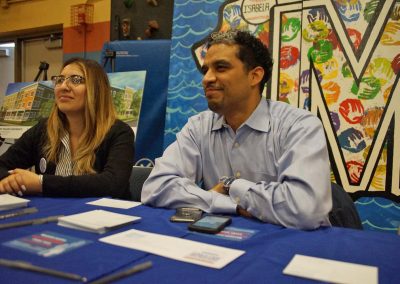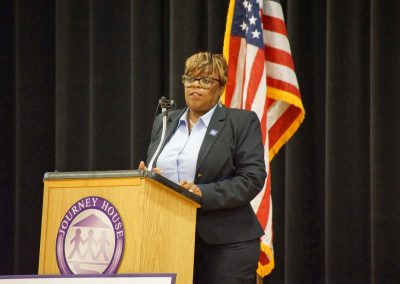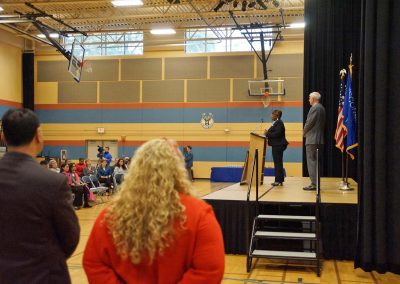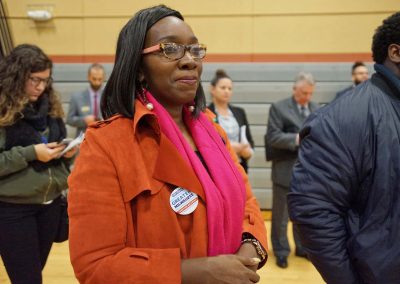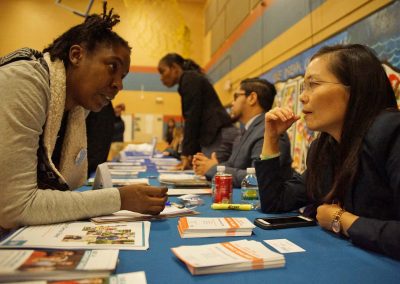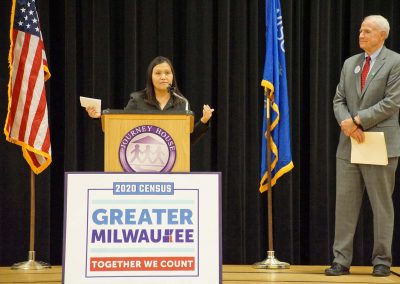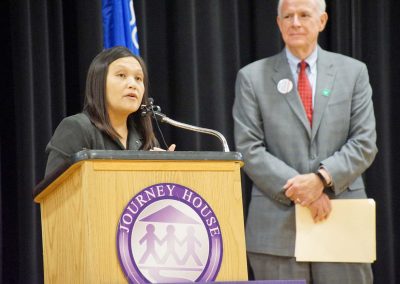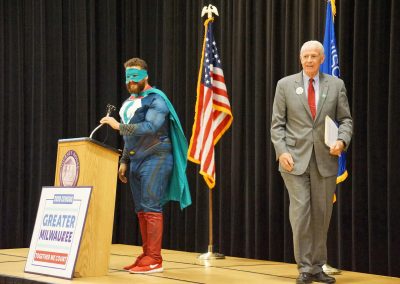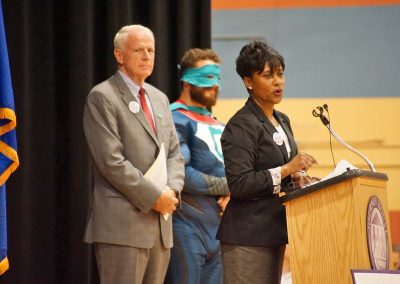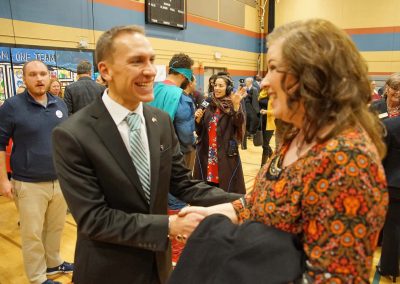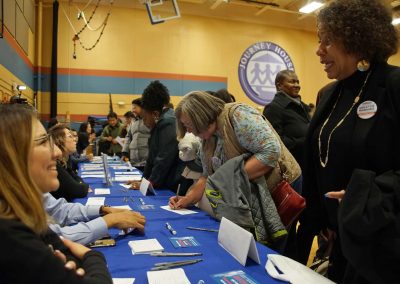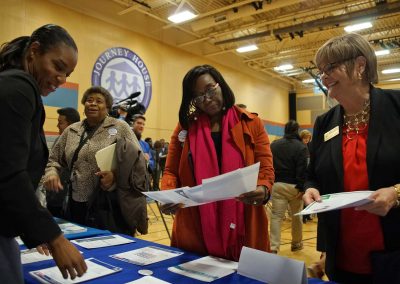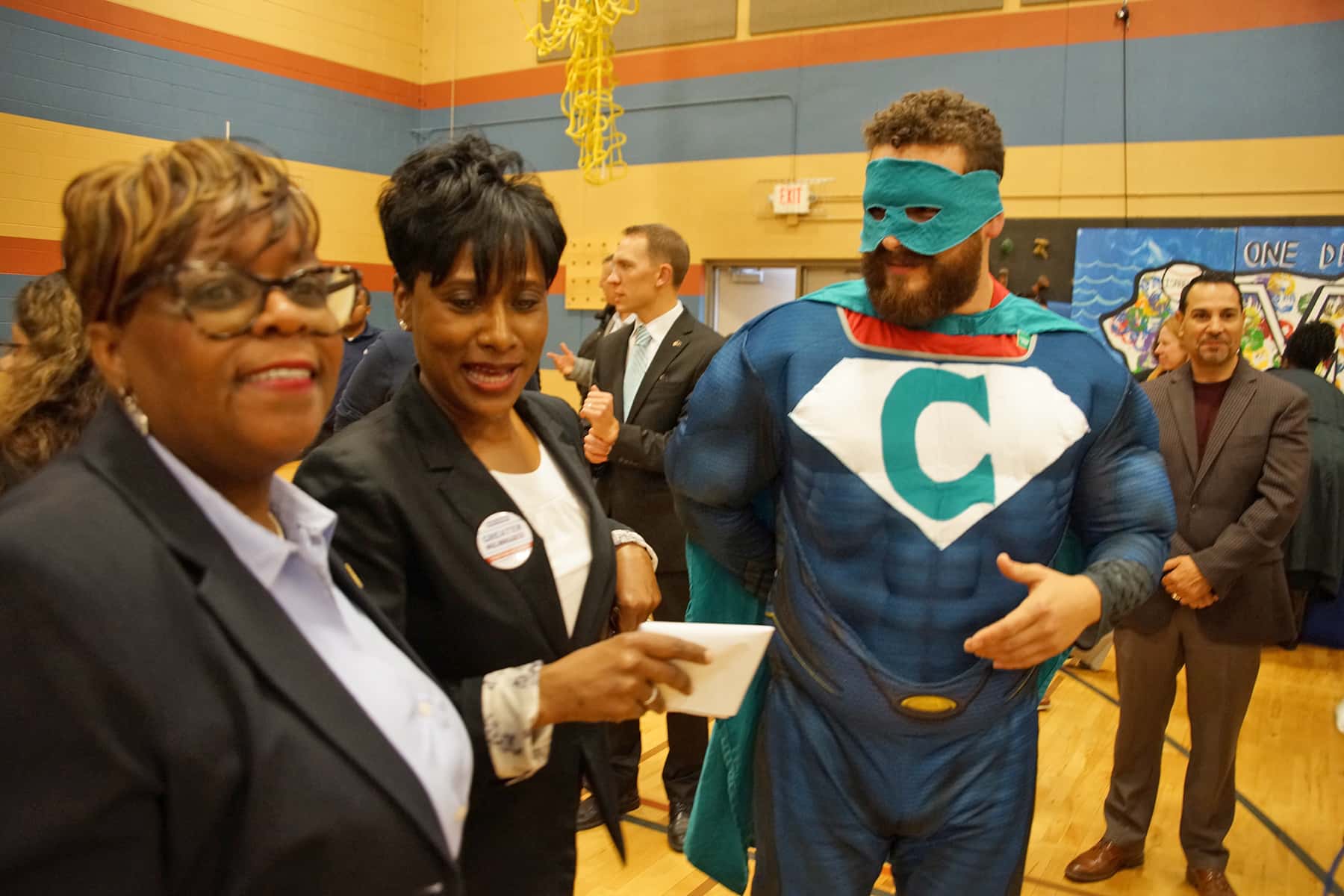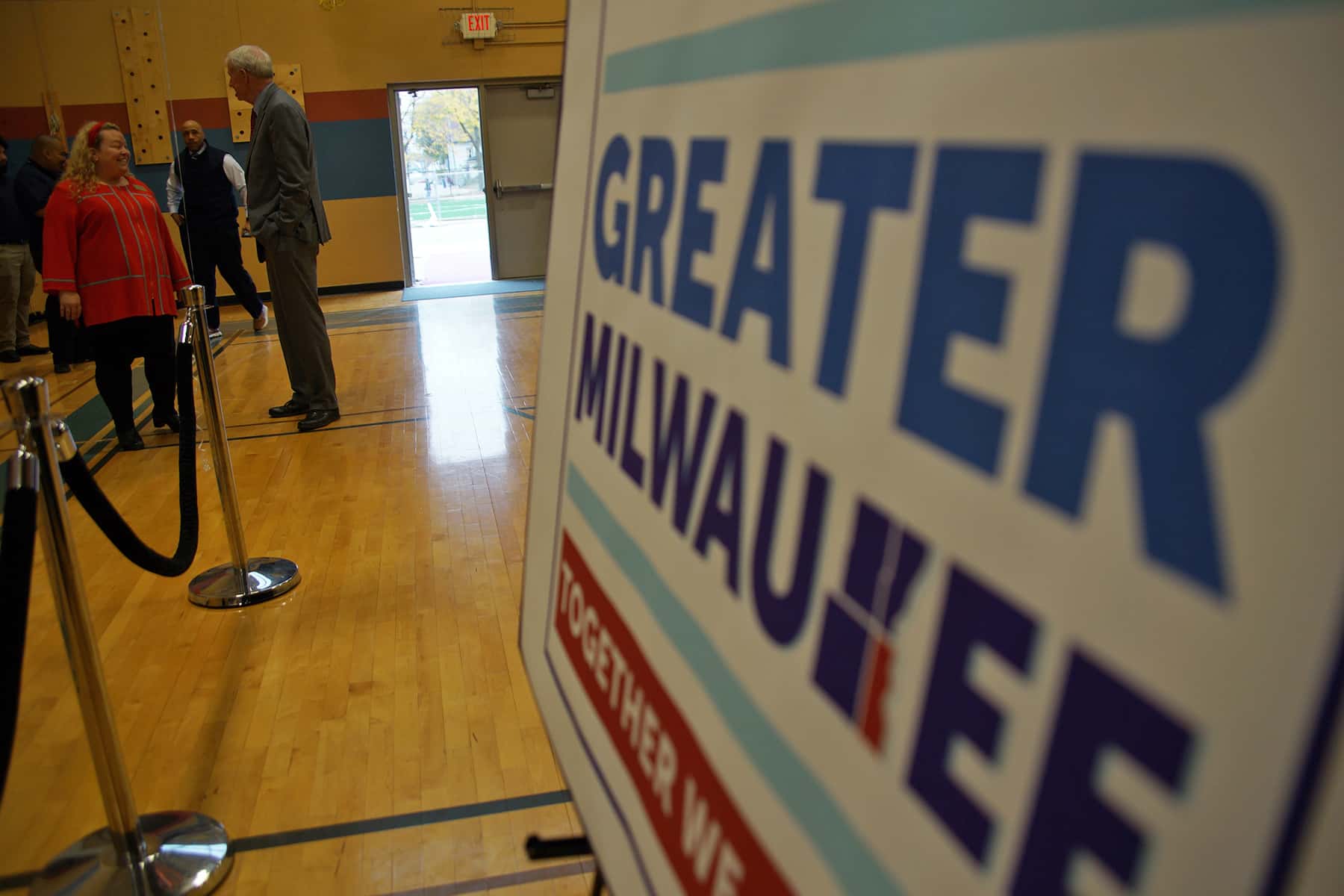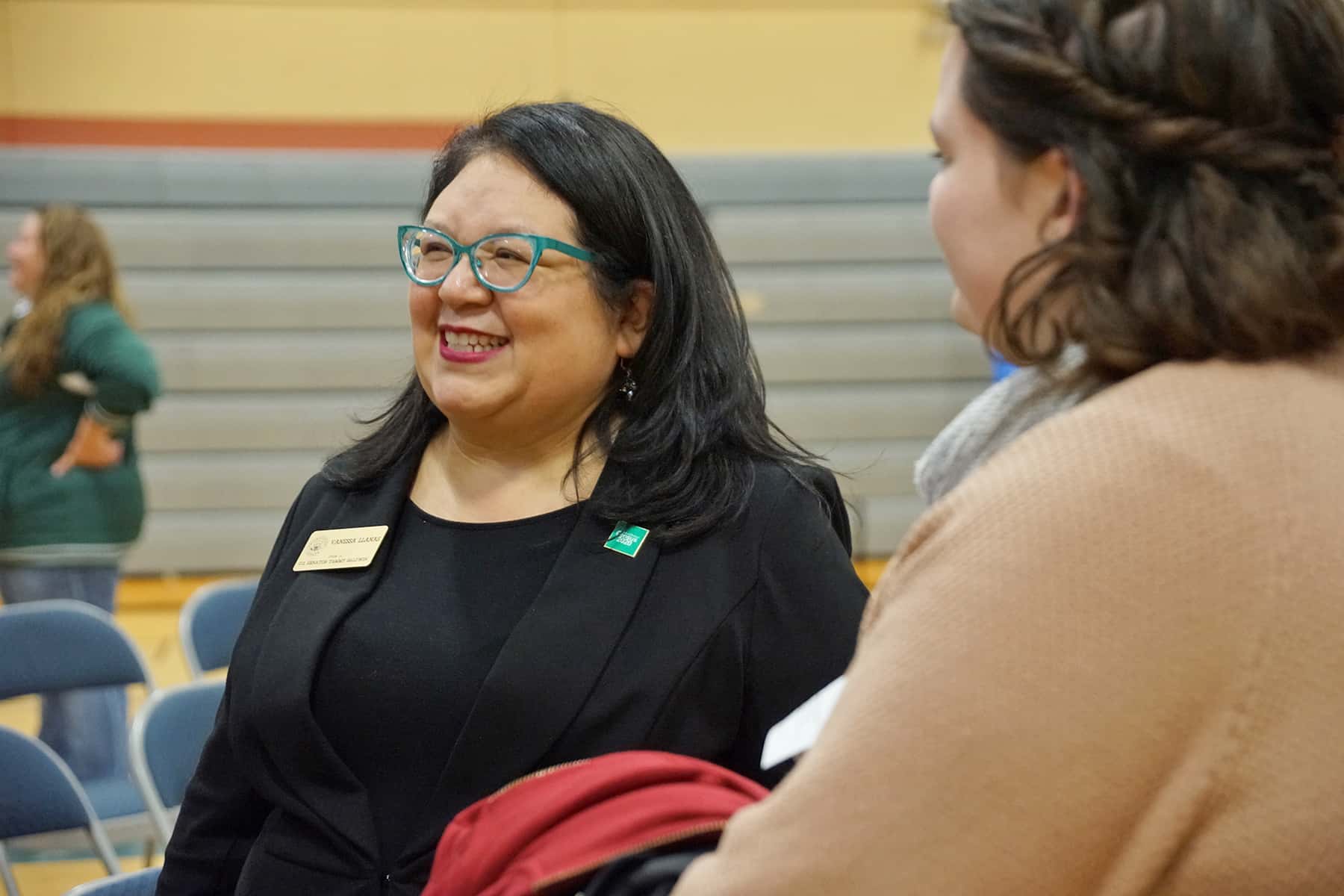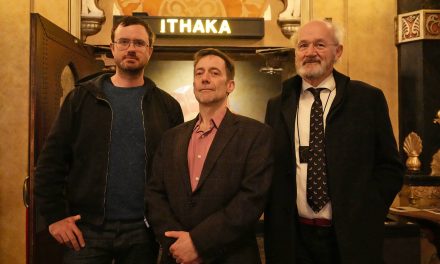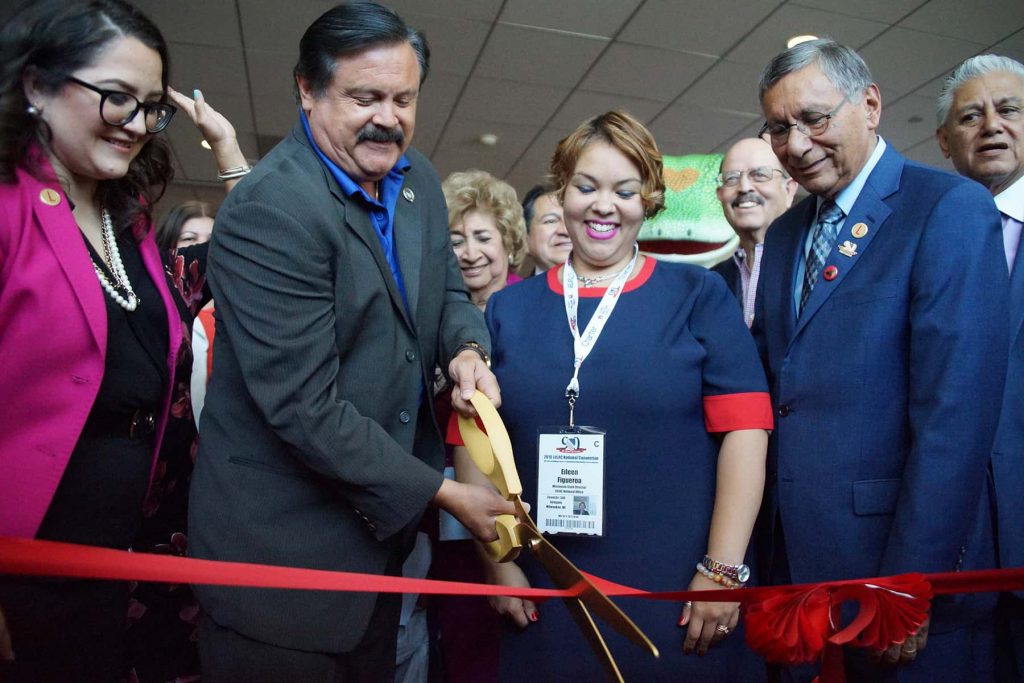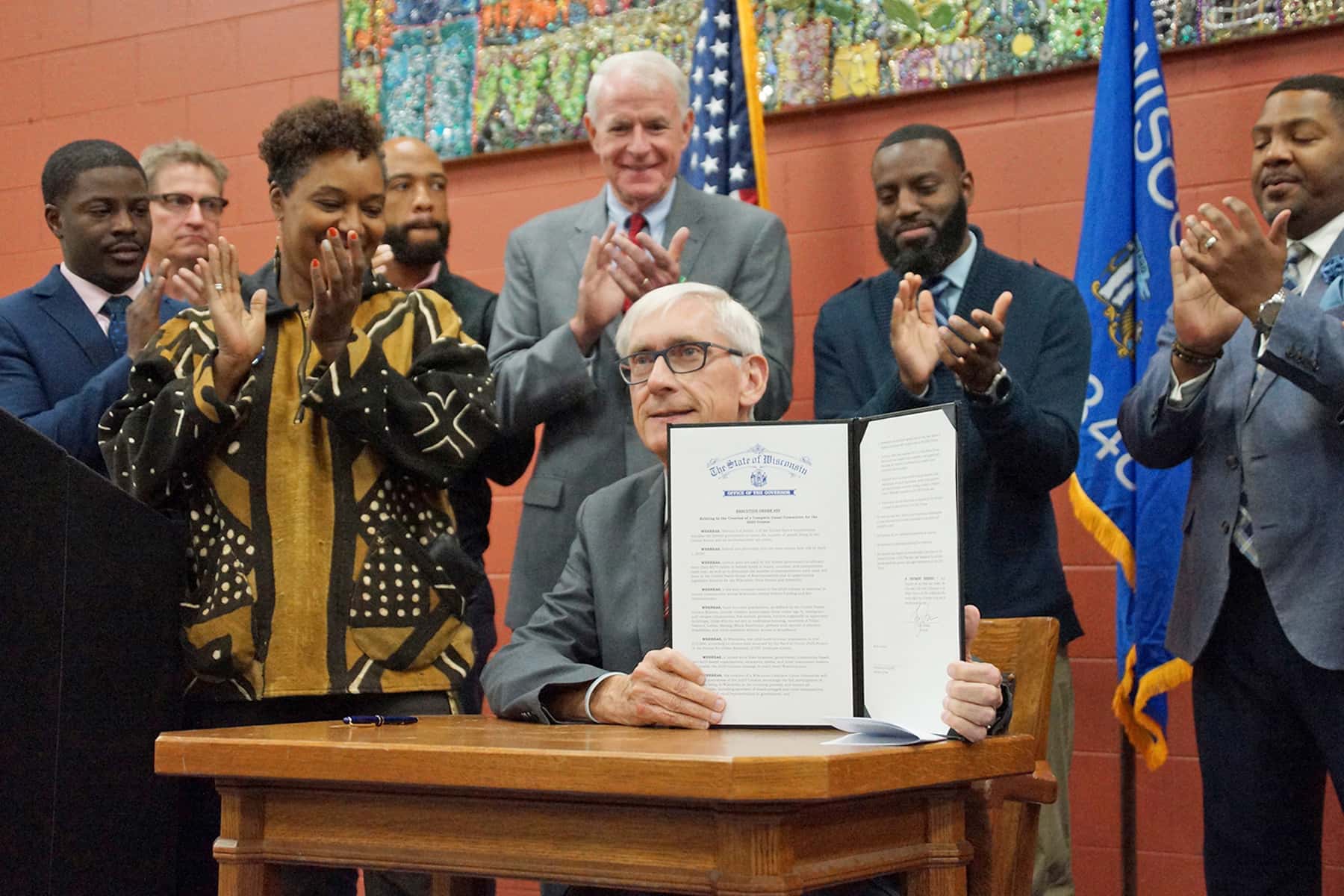
Journey House on Milwaukee’s south side hosted the press conference and kick off community event for the statewide 2020 census initiative on October 28, with the public and all levels of elected officials in attendance.
The gathering began with Governor Tony Evers signing Executive Order #55, to create the Complete Count Committee (CCC) for the 2020 Census. The purpose of the committee will be to educate Wisconsinites on the importance of completing the 2020 census, develop outreach strategies to reach hard-to-count communities, and identify and reduce barriers that impede participation in the counting process. With less than 6 months until the 2020 Census, it is vital to make sure every household is counted.
“Ensuring a fair and accurate count in the 2020 census is essential to the future of our state, as it determines how more than $600 billion in federal funding will be distributed and how Wisconsin’s next electoral maps will be drawn,” said Governor Evers. “At the end of the day, the census isn’t just a head count—it’s about visibility, voice, and value. So we need to make sure every Wisconsinite is participating in the count and encouraging their family, friends, and neighbors to participate too.”
April 1, 2020 is Census Day, the deadline to respond to the Census Bureau’s upcoming mid-March 2020 invitation to complete a brief census survey. An accurate count of residents ensures continued federal support and fairer elections in the future. The Governor signed the executive order surrounded by state and local leaders, including Mayor Tom Barrett, Lt. Governor Mandela Barnes, and State Representatives David Crowley and David Bowen.
The United States Census Bureau defines hard-to-count populations as children, immigrant and refugee communities like Latinx and Hmong, low-income families, renters and those who do not live in traditional housing, people of color, members of Tribal Nations, individuals with disabilities, and rural communities without access to broadband. It is estimated that the hard-to-count population in Wisconsin is over 600,000 individuals.
“In Article One. Section two of the United States Constitution, it talks about an enumeration every 10 years in this country,” said Mayor Barrett. “So from the left to the right, from the secular to the religious, from the economic benefits to the civil rights benefits. This is something that we, as Americans, should embrace. Here in Wisconsin and in Milwaukee, we will.”
Data from the Census is used by the federal government to allocate more than $675 billion in federal funds to states, counties, and communities each year, as well as to determine the number of representatives each state will have in the United States House of Representatives, and in apportioning legislative districts for the Wisconsin State Senate and Assembly.
“We live in a political climate where our Latinx brothers and sisters, who are seeking pathways to citizenship, have justifiable fears of being detained and deported for simply wanting to be counted. Wisconsin is a state that deals with both the legacy and present day racism, along with disparities between our rural and urban communities. We have to take all the necessary steps to make sure that everybody among us has a voice,” said Lt. Governor Barnes. “Our census affects the monetary resources that our state can get. Meaning, for every person not counted, our state loses out on nearly $1,400 dollars per person, per year. That’s money that can be used to fund schools, build health facilities, and improving the environment for our communities.”
Mayor Barrett emphasized the importance of breaking down barriers and perceived barriers that may keep households from returning their 2020 Census survey. After the press conference, Mayor Mayor Barrett held the 2020 Complete Count Committee Community Kick-Off event, along with Governor Evers, Marilyn Sanders, Regional Director of U.S. Census Bureau in Chicago, and Dr. Chia Youyee Vang, local education and nonprofit leader.
“The myth that census information is public or shared with other government agencies is false. It is against the law for the Census Bureau to share any private information that identifies an individual or their address with other government agencies,” added Mayor Barrett.
For the first time in history, residents can respond to the census online, and still have the option to respond by mail or telephone. Mayor Barrett announced the launch of an informative local website as part of the CCC’s proactive census awareness efforts. The website 2020 Census – Together We Count serves as a convenient, one-stop online resource to help residents get information they can use as they prepare to fill out their 2020 Census survey, and raise census awareness. It is also a good tool for receiving updates on census job recruitment and hiring.
As part of the launch of the 2020 Census recruitment campaign, more than 120 recruiting events will be held throughout Wisconsin, with the goal of recruiting temporary workers for positions beginning in spring 2020. The U.S. Census Bureau needs to hire about 500,000 census takers across the country. In order to meet this goal, the Census Bureau is starting peak recruiting efforts now, and rolled out an online job website to help the application process.
“The community we represent is relying on an accurate census count. Taking the census is safe, required by law and protects our power. It’s critical that every person participate in the census regardless of their status. Fair political representation and access for vital public services depend on it,” said Karina Blas, Deputy Consul of the Mexican Consulate of Milwaukee.
An interesting footnote about the purpose, importance, and influence the census process was shared regarding religious history. Because of the Roman census under Caesar Augustus, Jews had to return to their hometowns. Joseph and Mary had to comply, and that was how Jesus came to be born in Bethlehem.
© Photo
Lee Matz

